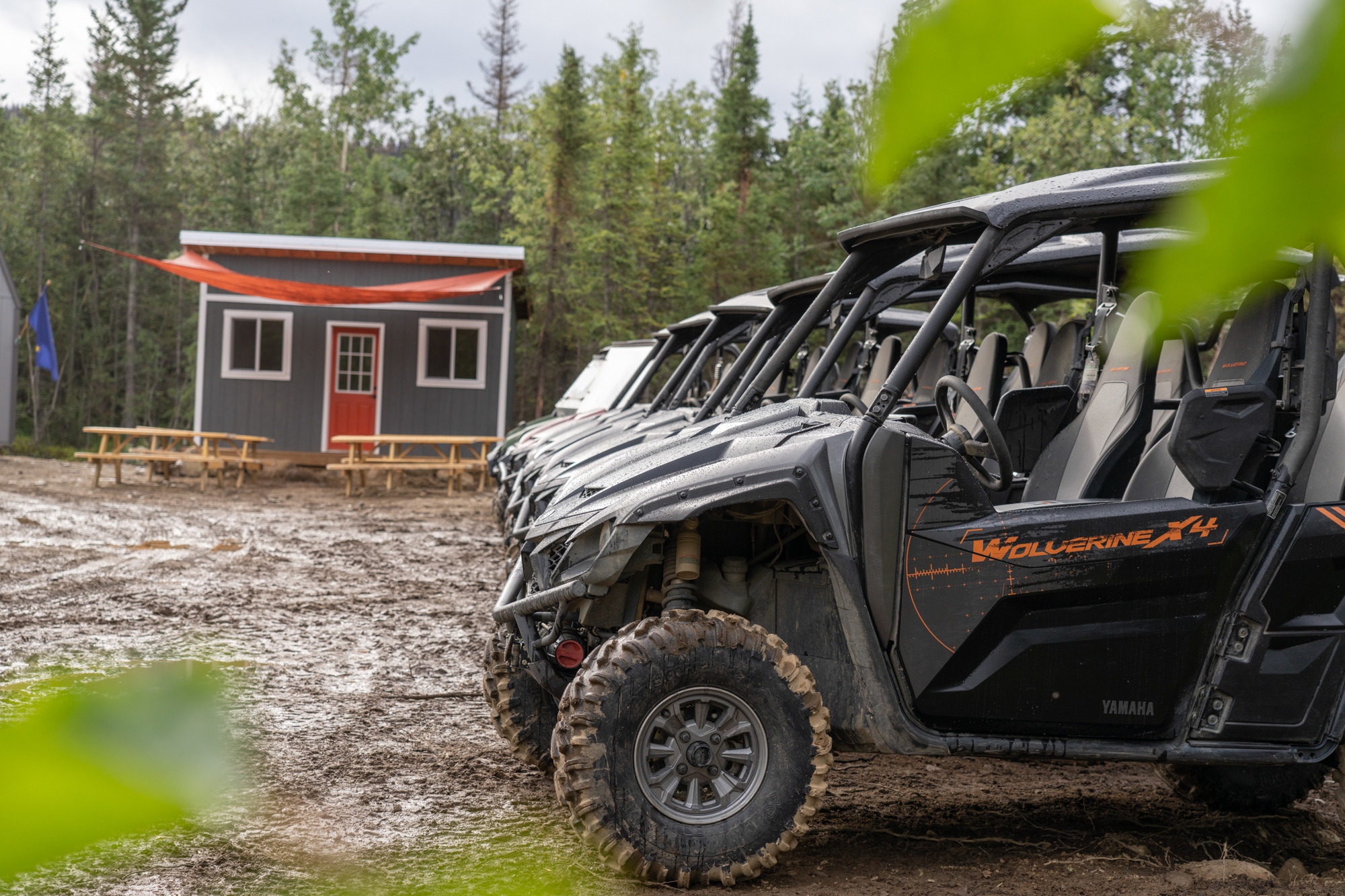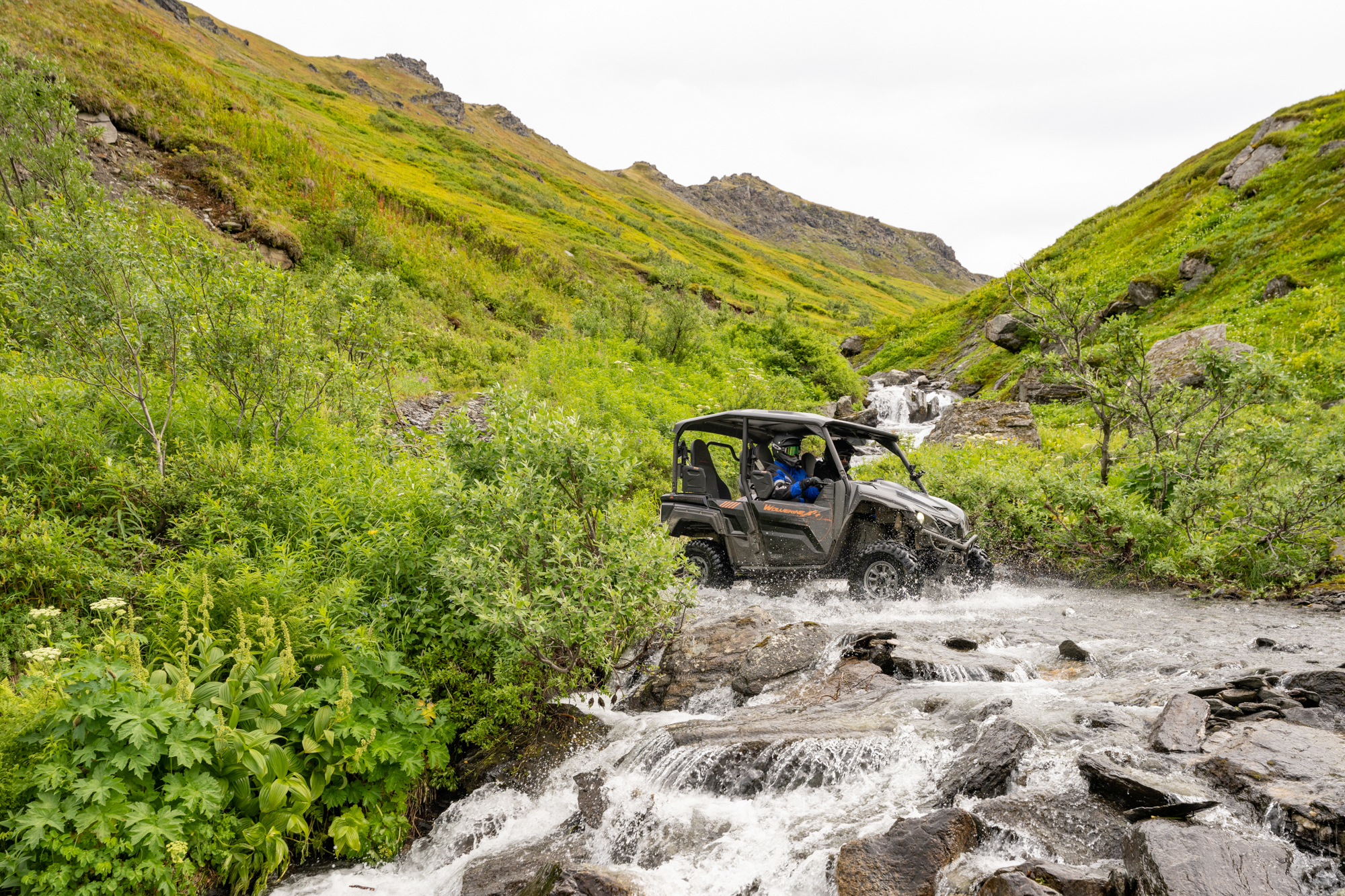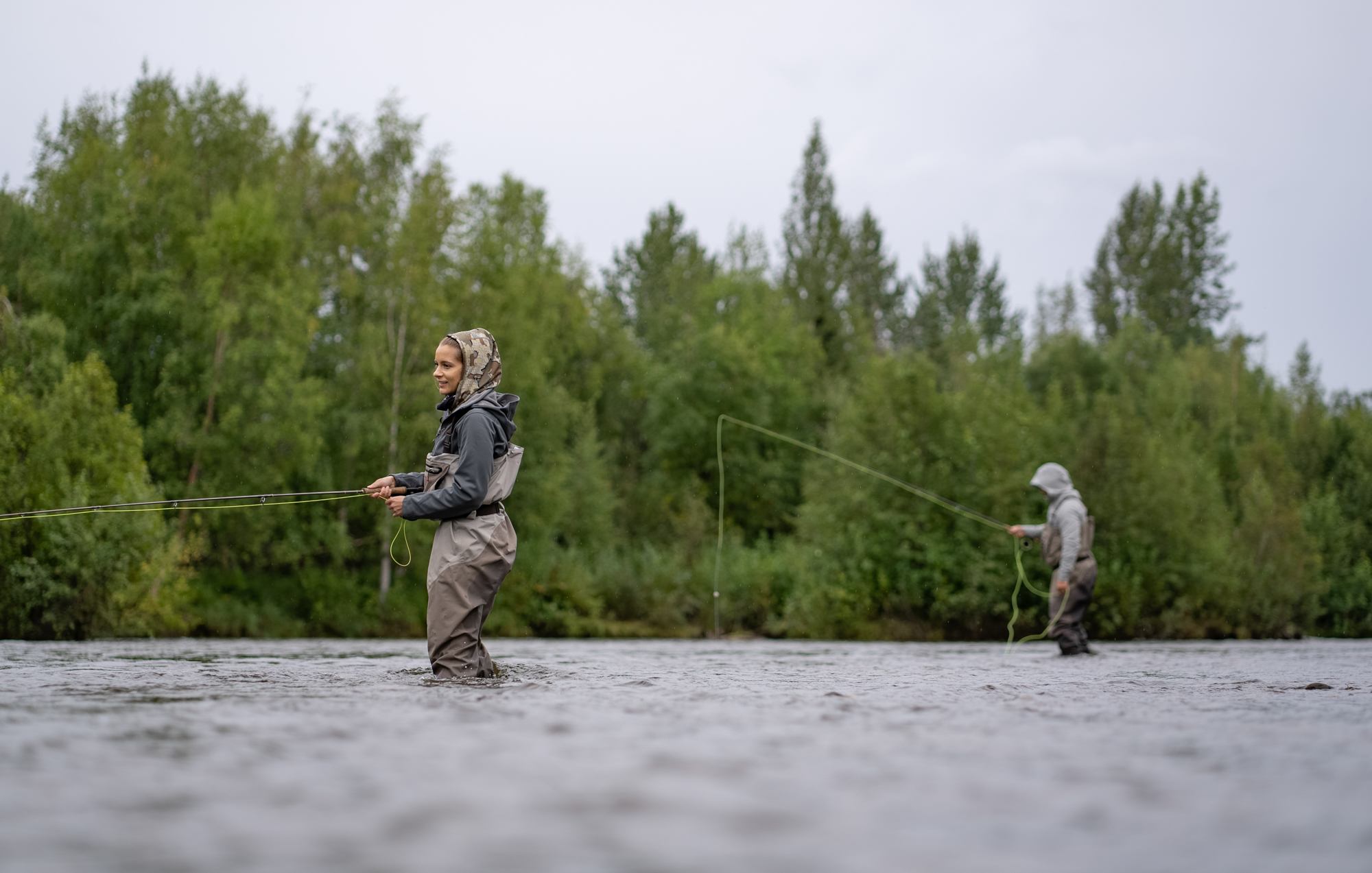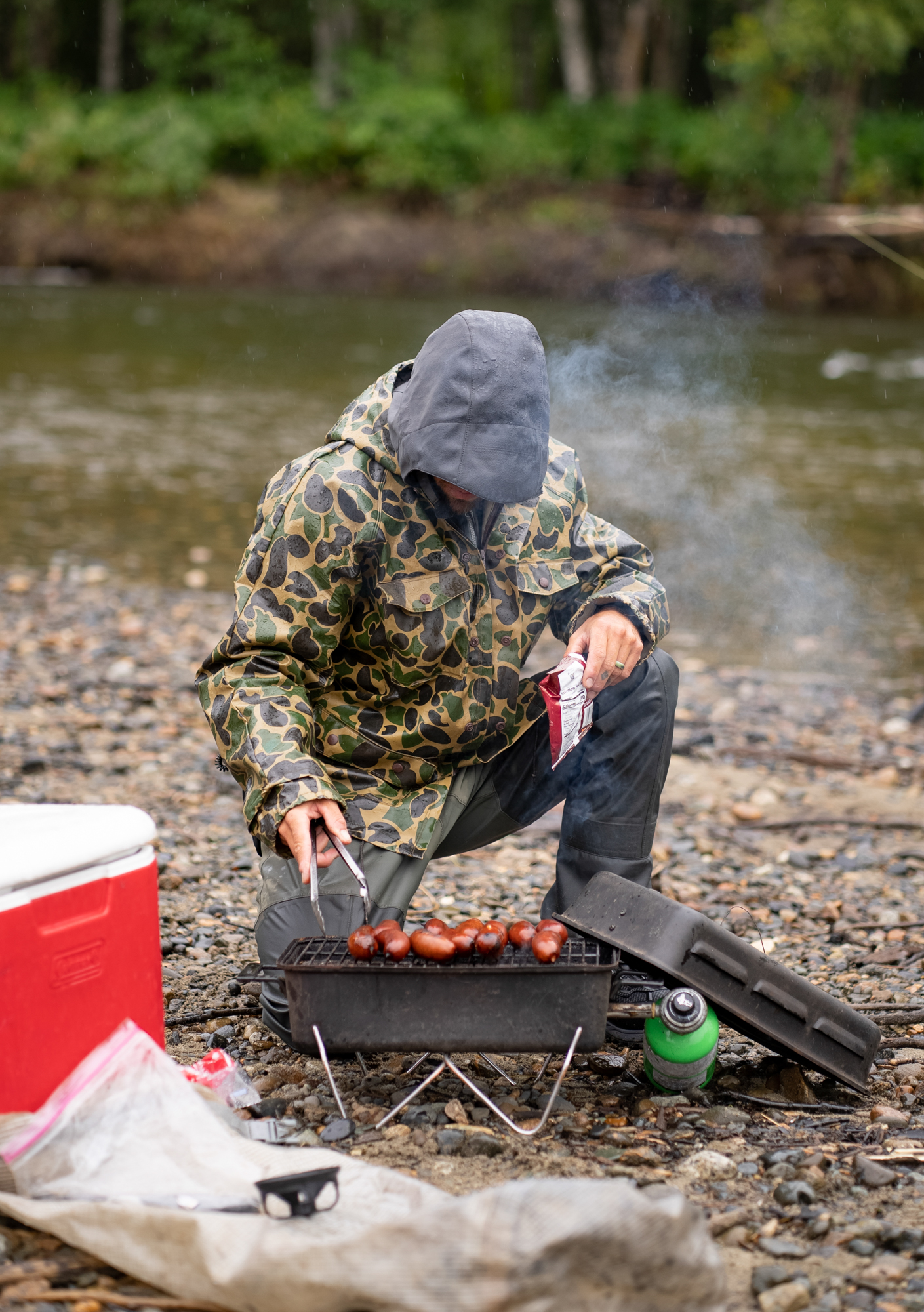“Do you want to go on an Alaskan adventure?”
I didn’t need to hear any more from Van Holmes, public relations manager for Yamaha Motor Corp. Alaska had been at the top of my bucket list for years. The details—who else was going, where in the state we’d be, or what we’d be doing there—didn’t matter in the slightest. So I ditched my plans for a relaxing end-of-summer beach trip and accepted the invitation. Less than two weeks later, I was headed north.
Reaching the Last Frontier
After nine hours in the air from central Pennsylvania, my flight touched down in Anchorage on a Monday afternoon, and I headed to pick up our RVs for the week from a place called Great Alaskan Holidays.
After watching a 30-minute orientation video and signing a few forms, I got the keys to my very own Minnie Winnie. These requirements seemed lax given that the largest vehicle I’d driven up to that point had been a Chevy Suburban. I cringed at the thought of steering a 25-foot beast through an unfamiliar state littered with moose-crossing signs. A few laps around a Wal-Mart parking lot later, and I departed for the hour-and-a-half haul to camp.
I was traveling with a group through the Destination Yamaha program, which allows you to experience adventure destinations through a network of more than three dozen guide and tourism partners across the country. You can sign up for guided tours, or rent Yamaha’s latest ATV, side-by-side, motorcycle, and snowmobile models in places much more scenic than a dealership parking lot.
Our convoy of RVs pulled onto the road and we got separated at the first red light, and I was left heading up the second half of our fleet. Driving through the tight streets of downtown Anchorage in the massive RV had me soaked in sweat within minutes. Once we reached the highway, though, it was a straight shot to Willow. Even with fog and drizzle, the views were stunning. I just had to tear my eyes from the road to take them in.
Over the Mountains
We pulled into Willow Creek Resort early that evening and parked our RVs along the water. Willow Creek is a tributary of the Susitna River, with headwaters in the southwestern part of the Talkeetna Mountains. A few anglers nearby were landing spawned-out salmon in the shallows.
In the morning we made the short drive to Snowhook Adventure Guides of Alaska, where a row of side-by-sides awaited us. Among this group of experienced offroad drivers, I was by far the newest to the Yamaha side-by-side. My outdoor adventures are usually more focused on hunting, and riding to my treestand in flat Texas country was about the extent of my UTV expertise. But the suspension and On-Command 4WD made maneuvering the narrow trail, rocky terrain, and flowing creek so fun that I almost forgot my inexperience. The engines echoed and the exhaust crept into my nostrils, cold water showering us as we ripped through muddy puddles.

Our ride took us over Hatcher Pass in the Talkeetna Mountains. The surrounding country was breathtaking, with rolling green hills, pristine waterfalls, colorful wildflowers, and the occasional snow pile—the kind of landscape I’d only even seen on desktop screensavers. We were hoping for a moose or grizzly sighting, but the vast area seemed as undisturbed by wildlife as it was by people: we didn’t encounter a single person on the first leg of our trip.
Even with the state’s signature wind, drizzle, and cold, the ride was peaceful. Every so often, we’d climb out of the side-by-sides and roam the spongy ground to take in views of the seemingly endless valleys. Every time I pulled off my helmet, the breeze bit my cheeks and tossed my hair. I filled my chest with gulp after gulp of chilly air, trying to save some for later.
As we snacked on our packed lunches and wild blueberries, our guides told us that Hatcher Pass has proven one of the best gold-producing areas in the state, and both commercial mining and recreational panning still take place here. The pass spans dozens of miles in the Mat-Su Valley of southcentral Alaska, and was originally used by gold miners and prospectors a century ago. While mining rights and the practice itself have been a bone of contention on a larger scale, says guide AJ Savidis, locals are generally respectful of the land, wildlife, and each other.

Extreme weather had taken out one of the trail we’d planned to take, so we ventured onto a more technical path. This time when I gripped the steering wheel, I struggled to keep my eyes on the route. The sprawling, open country made me feel so small, the expanse so incomprehensible that I struggled to process it. When I put Alaska on my bucket list all those years ago, this is exactly what I had imagined.
Rain Clouds and Rainbows
The following morning was overcast and rainy. I had been feeling more in my element at the prospect of a day fishing, but my heart skipped a beat when three guides from FishHound Expeditions unloaded the gear. A bowfishing rig is typically my tackle of choice, and I know my way around a spinning rod, but I’d only picked up a fly rod one time before.

Our patient guides gave us a quick lesson with a few different techniques for rainbow trout and four varieties of salmon: king, silver, chum, and pink. Lined up in ankle-deep water, we awkwardly tried to mimic the smooth, effortless casts of our instructors. After a few failures, I managed to make a cast that somewhat resembled the demonstration. Declared proficient enough to cast from the rafts, we split into three groups and launched into Willow Creek directly behind our campground.
Read Next: Rafting and Fishing Alaska’s Overlooked Lake Creek
Within a minute, I made a short, hesitant cast and immediately hooked a rainbow. I barely felt the tug before my guide started cheering.
“Fish on! That’s a huge trout!”
I could get used to this kind of fishing.

We caught several trout, occasionally jumping out of the raft to wade where our guide expected us to have the most luck. Despite repeatedly getting stuck on what he called “the snaggiest spot in the country,” we were enjoying the kind of success I’d always heard about in Alaska.
Halfway through the float, our whole crew stopped for a lunch break (“reindeer” hot dogs) on the bank. Even the offroad guys who’d never consider themselves anglers were enjoying themselves.
That afternoon we switched our focus to salmon. At this time of year, most of the salmon have spawned and become inedible. Our goal was to catch a couple silver salmon which would still be suitable for dinner. More and more rafts sprinkled the creek, making it tough to find undisturbed holes. We managed to hook a few old, weathered salmon, but the silvers eluded us.

End of the Road
A few hours later, we reached the take out and drove back to camp for dinner before turning in early again so we could return to Anchorage in the morning.
Read Next: The 10 Best Alaska Fishing Trips
No matter how you do it, traveling to Alaska can be a big undertaking, both financially and logistically. It might be a once-in-a-lifetime destination that demands months of saving and planning. But after spending a week in the Talkeetna Mountains, the Last Frontier doesn’t seem so out of reach. And after navigating an RV the size of a small house and steering a UTV through rushing waters for the first time, I know that while motorized recreation can be intimidating, it’s also worthy of any outdoors bucket list.
Despite the continued rain, I felt more comfortable driving my RV back than I had setting out for camp. It had been a fun week, and I was less relieved to hand over the keys than I expected.
